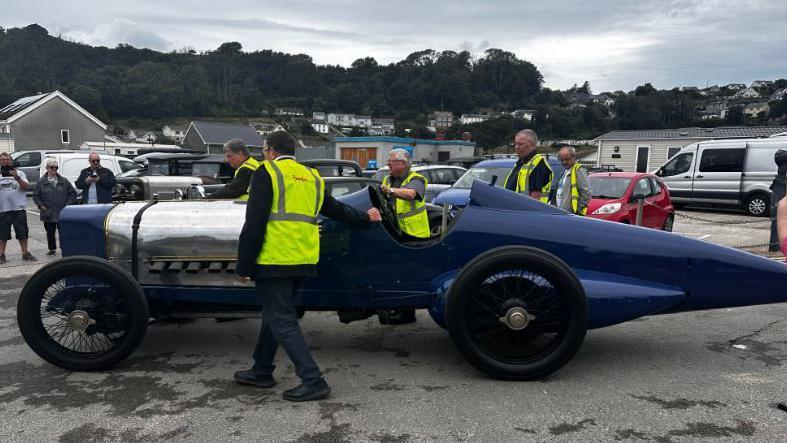The Welshman wrapped in myth who met Hitler and exposed Stalin
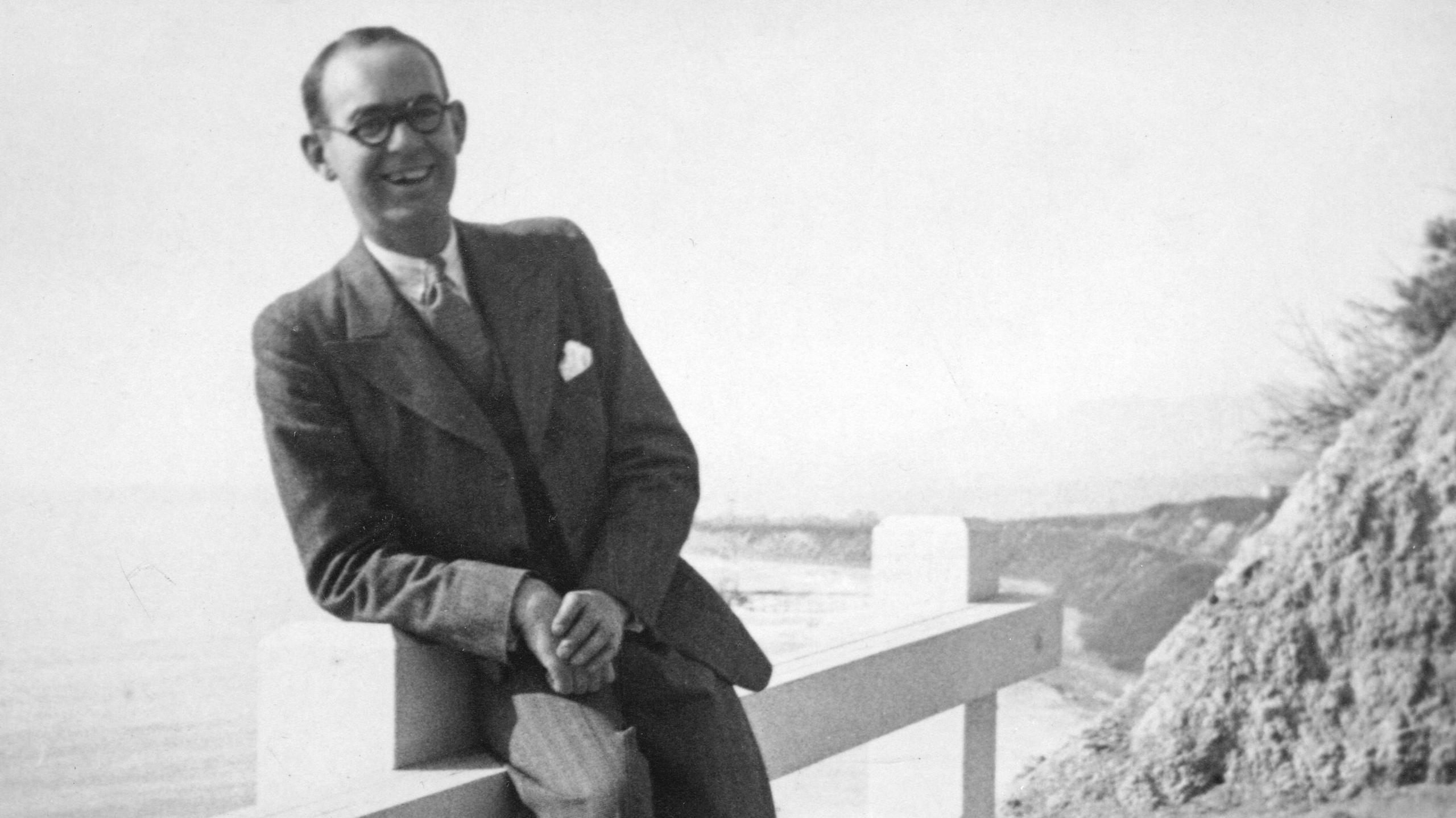
Gareth Jones had a yearning for travel from his childhood, watching the ships at Barry Dock
- Published
He only lived to 30, but Gareth Jones witnessed many of the 20th Century's most momentous occasions - including flying with Adolf Hitler on his private plane, and helping to expose man-made starvation in Joseph Stalin's Soviet Union.
It is now 90 years since his death in 1935, but campaigners want him to be remembered by the naming of a waterfront square in his honour in his hometown of Barry, Vale of Glamorgan.
Regarded as one of Wales' greatest journalists, Jones travelled the world looking for scoops and died in mysterious circumstances reporting on the Japanese occupation of Manchuria.
His great-nephew Philip Colley believes much of what is remembered is wrapped in myth, and is working on a biography telling his story.
Mr Jones film highlights Welsh 'unknown hero'
- Published3 February 2020
Disappointment for Ukraine fans in Wales
- Published3 July 2021
It is Jones' time reporting in modern day Ukraine which is perhaps best known, with his accounts of the Holodomor - a man-made starvation which killed millions - at the time rubbished by many western newspapers.
A film on the life of the former Western Mail journalist depicts him trying to convince others of the truth of what was happening.
Mr Colley believes Jones' work continues to be misrepresented, which he said helped to give current Russian leader Vladimir Putin justification for his war in Ukraine.
"In 1933, after Gareth reported on Stalin's famine across the Soviet Union, his reputation was attacked by some western media, foremostly the New York Times, suggesting that he'd sensationalised the depth of the crisis there," he said.
"Gareth responded by accusing his critics of being 'masters of euphemism and understatement'... according to them, people weren't starving, they were dying of 'illnesses brought about by malnutrition'."
Mr Colley added: "In recent times, some historians and politicians have refashioned Gareth's legacy, to fit a modern political narrative.
"They suggest that Gareth was a Ukrainian hero exposing a deliberate genocide.
"Neither story is quite true, as he was actually pointing to a wider global economic disaster."
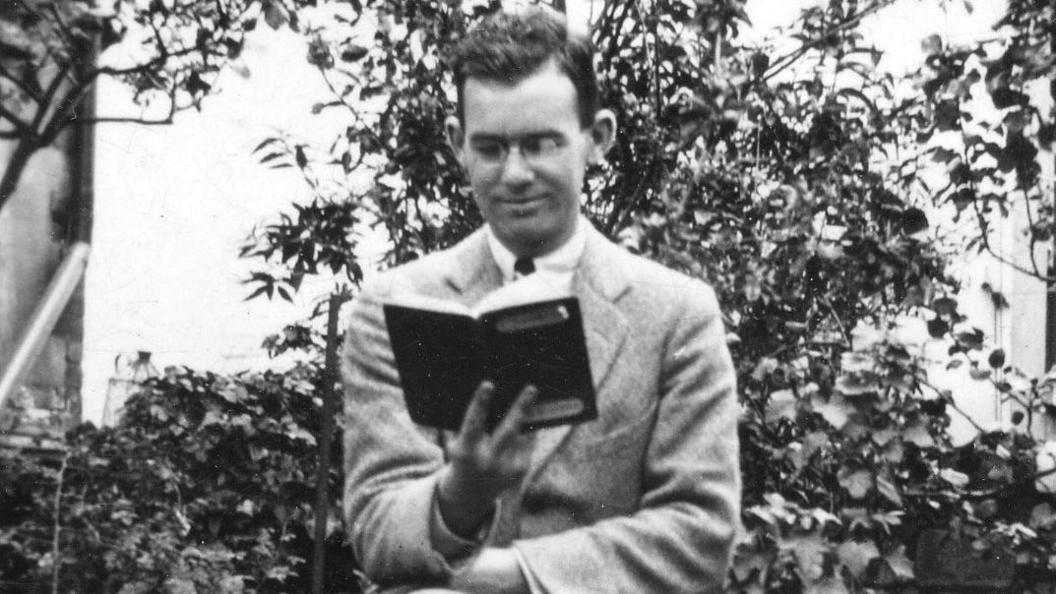
Gareth Jones travelled from America in search of scoops
Mr Colley said that while many historians suggested Jones purely focused on the starvation of Ukrainian "Holodomor peasants", in fact he was equally concerned with the effects of Stalin's policies throughout the Soviet Union, which the journalist considered were created by misguided communist dogma rather than a deliberate attempt to kill a single ethnic group.
"Gareth travelled widely across southern Russia, as well as Ukraine, and saw little difference in the condition of peasant farmers," he said.
"People were dying because of the policies of forced collectivisation of small privately owned farms into government-controlled ones, the loss of farming expertise caused by the expulsion of the Kulaks, and the taking of grain from the mouths of peasants so it could be exported to earn foreign currency."
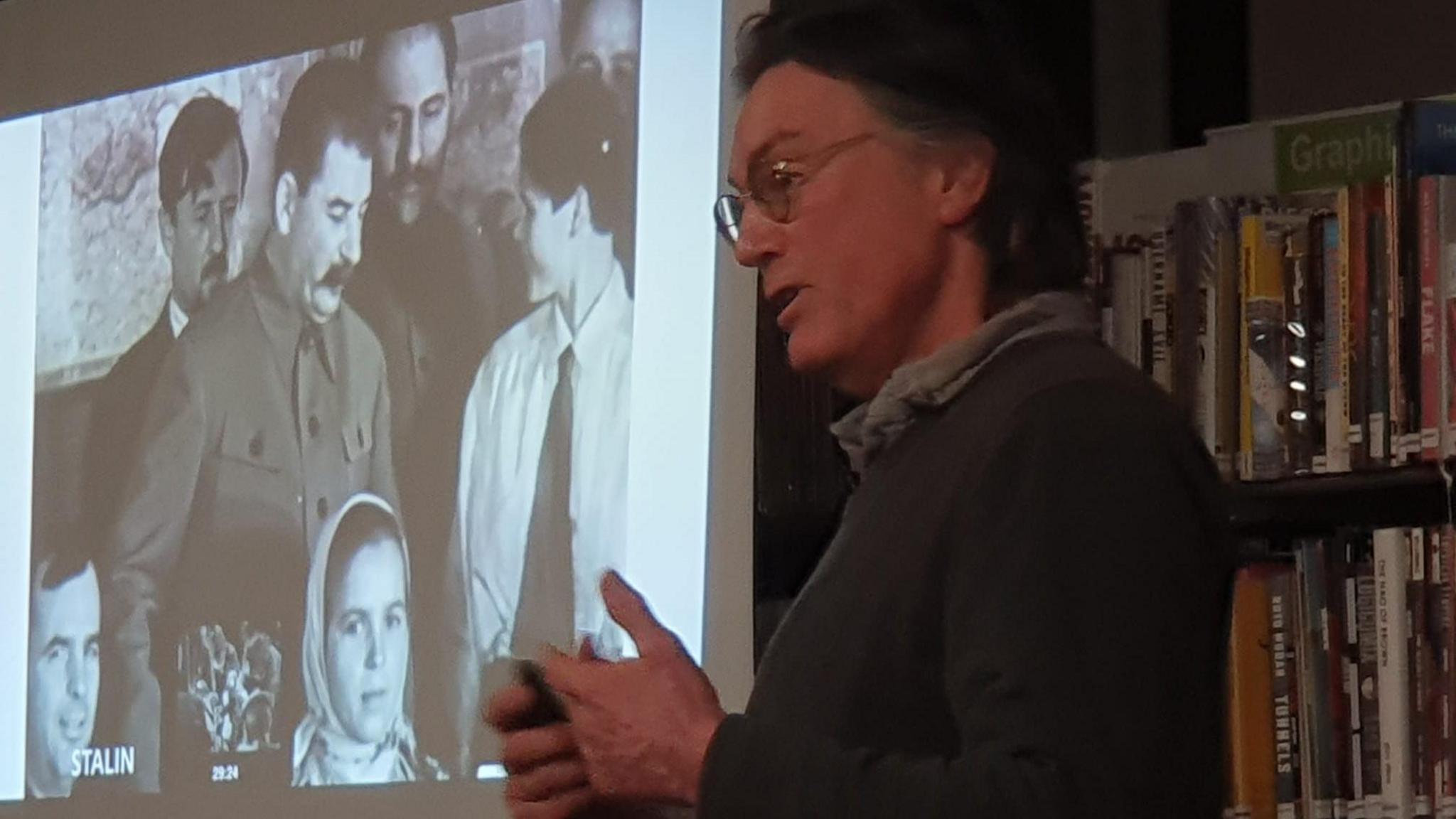
Gareth's great-nephew Philip Colley studied Jones' life for his university dissertation in 1986, and is now writing a biography
Jones' story began long before his time in the Soviet Union.
With four first-class honours degrees in languages from Aberystwyth and Cambridge universities, at 24 he was appointed foreign affairs adviser to former Prime Minister and fellow Welshman David Lloyd George.
Within a year of graduating from Cambridge Jones was walking the corridors of Whitehall, as well as interviewing the likes of Lenin's widow Krupskaya, American architect Frank Lloyd Wright, US President Herbert Hoover, and Irish Taoiseach Eamon de Valera.
According to Mr Colley, he wasn't in the least bit intimidated.
"You could say, in the nicest possible way, there was a streak of narcissism to Gareth," he said.
"Not superiority, more that he believed that his charm, academic brilliance and travel experience gave him the confidence to debate on an equal footing with the likes of Churchill and Lloyd George.
"What's more, they took him very seriously too."
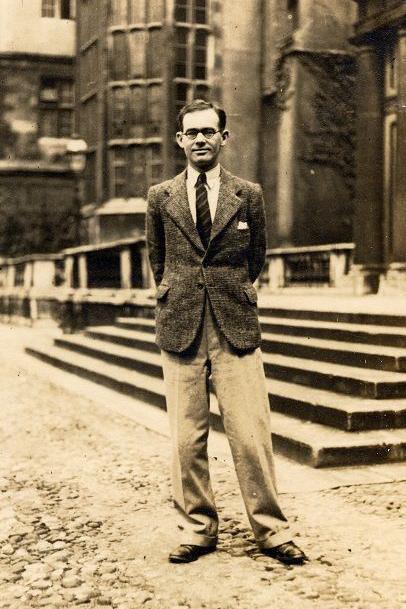
Mr Jones earned three first-class honours degrees in French, German and Russian from Cambridge University
In 1932 Jones was sent to monitor Hitler's rise to German chancellor, though not even Lloyd George could have anticipated the unprecedented access he would gain to the Nazi hierarchy.
He was at his swearing-in ceremony in Leipzig, flew on Hitler's private plane, and appeared on stage with him at an election rally in Frankfurt.
However, Mr Colley believes none of this should be interpreted as Nazi sympathy.
"It's true that Gareth reported positively on some of Hitler's early economic achievements and rise in workers' standards - especially compared with the mess of the Soviet Union, Britain and America during the Great Depression - but so did most of the British press, including the Daily Mail and Daily Express.
"On the other hand, he was the first to call out the antisemitism at the heart of the Nazis, seeing it as their core belief and not just a fringe thug element within the party."
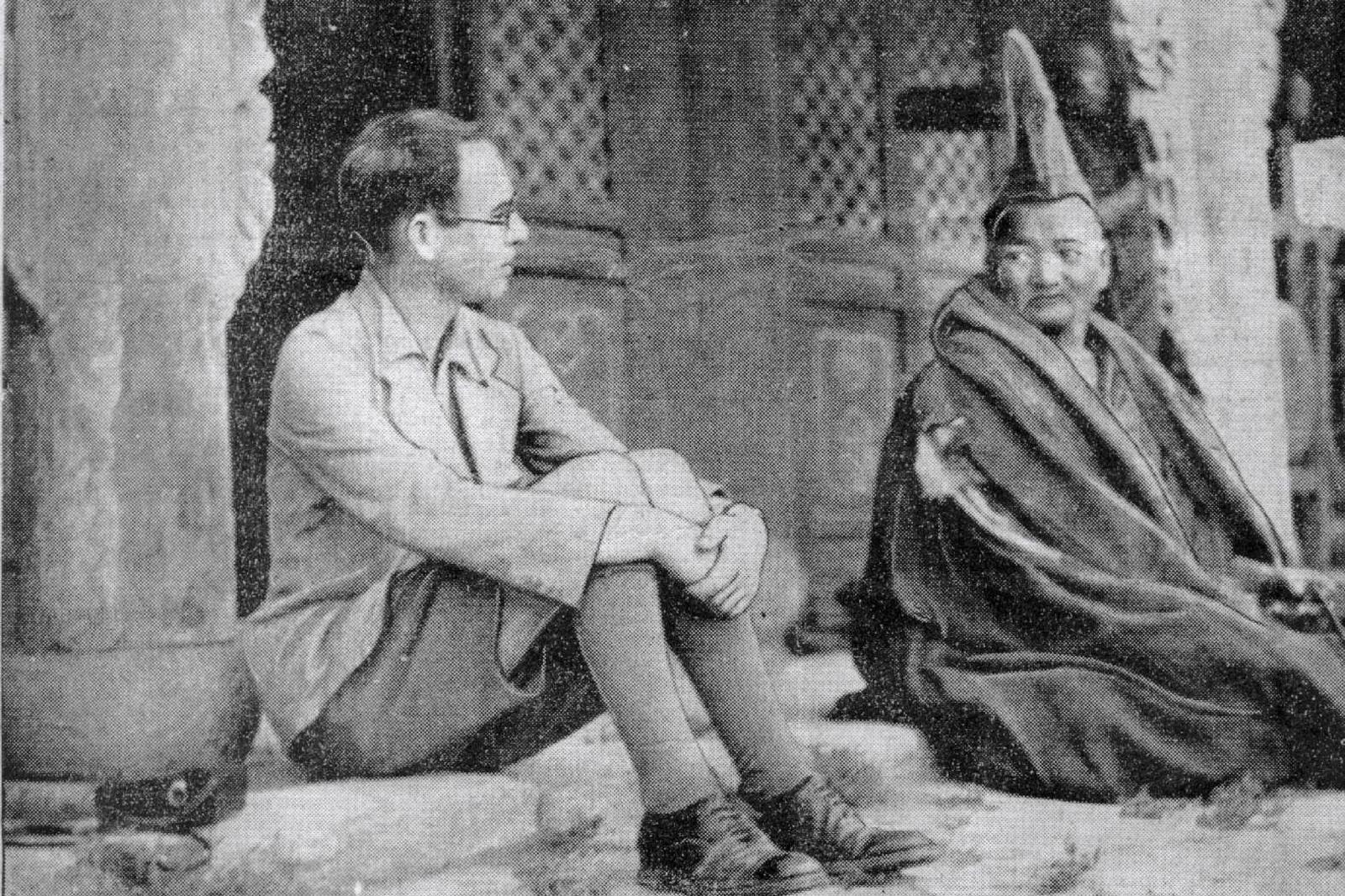
Mr Colley will be giving a free lecture on 13 August at the Barry War Museum & Heritage Centre
After Jones' fall from grace following his famine pieces, in 1935 he turned his attention to Japanese expansionism into the Chinese territories of Manchuria and Inner Mongolia.
He was turned away by the Japanese and subsequently captured by Chinese bandits, and after two weeks in captivity shot dead in mysterious circumstances.
Mr Colley said: "It is my belief the bandits had simply grown tired of holding on to him while they were constantly pursued by the Chinese police.
"Others like to think that his killing was ordered by the Soviet secret service. The Foreign Office at the time suspected that the Japanese had a hand in it."
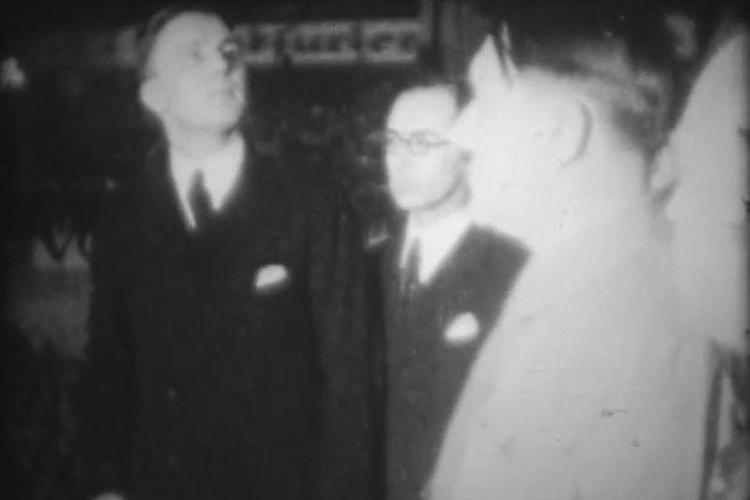
Gareth Jones - on stage with Adolf Hitler at a Frankfurt election rally - interviewed many of the world leaders of his time
In late 1935, Mr Colley's mother - Jones' niece - Dr Margaret Siriol Colley, travelled from Paddington to Cardiff with his ashes on her knee.
Mr Colley said it was a harrowing journey, but one which inspired her to write her own book More Than a Grain of Truth.
"My mother was determined to give her uncle his rightful place in history after Gareth's sister Gwyneth died, and she found their home virtually untouched since the '30s, with all his original diaries, posters and photographs," he said.
"Now more information has become available, I just want to be able to set the record straight, building upon the work my mother had already achieved."
- Published5 July 2012
- Published27 July

- Published20 July
